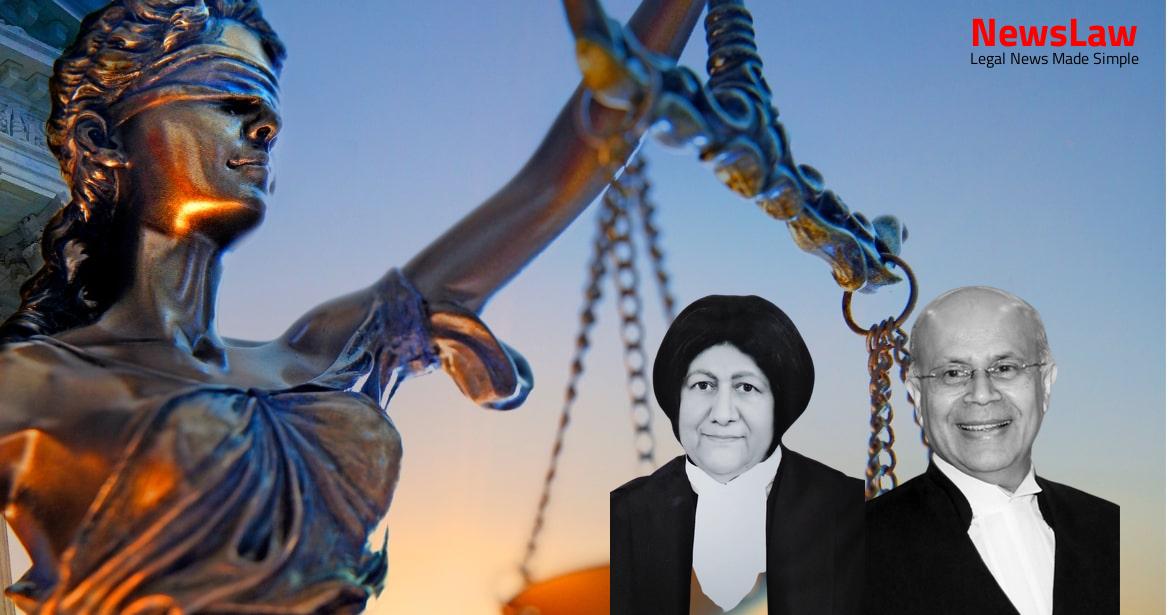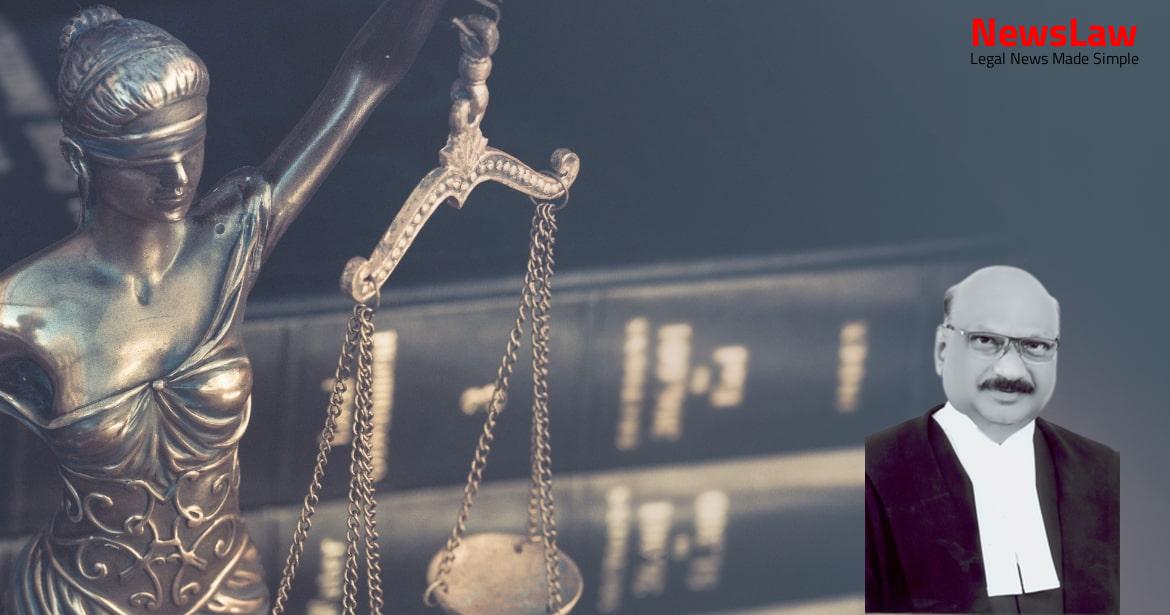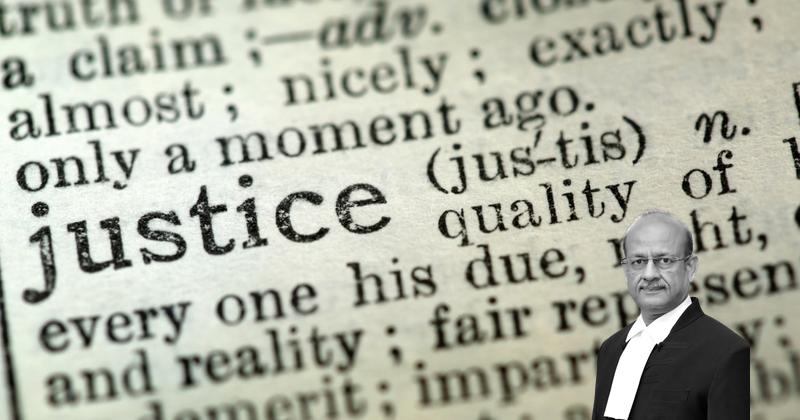The legal case discussed in this summary centers around the interpretation of Section 24(1)(a) of the Land Acquisition Act, shedding light on the court’s rigorous legal analysis. The focus is on how court orders impact compensation determination and the applicability of the Act, 2013 to ongoing land acquisition proceedings. Stay tuned to explore the complexities of legal provisions and their implications on land acquisition matters.
Arguments
- High Court correctly held that compensation under the J&K Act before its repeal would be determined according to the J&K Act
- Section 24 of the Act, 2013 would apply only if the acquisition was initiated under the Land Acquisition Act, 1894
- Intent of the legislature was to ensure old Act proceedings did not lapse but still provide benefits under Act, 2013 to landowners
- No passing of award due to a stay order does not justify application of Section 24 of the Act, 2013
- Previous award should be made according to State Act of 1990, not Act, 2013
- Judgment in the Bangalore Development Authority case does not apply to the current situation
- Repeal of the Act should not affect rights acquired under the old law
- The learned Counsel representing the original writ petitioners argue that the land acquisition proceedings were challenged on various grounds before the High Court.
- They also mention that the request for enhanced compensation under Section 24(1)(a) of the Act, 2013 was made as an alternative due to the non-declaration of the award under Section 11 of the State Act of 1990.
- The High Court did not delve into the merits of the original writ petitioners’ arguments regarding quashing the land acquisition proceedings, as an alternative relief was also sought by them.
- It is emphasized that the issue of quashing the land acquisition proceedings is yet to be fully considered since the alternative relief was also part of the petition.
Also Read: Challenging Legal Presumptions in Negotiable Instrument Cases
Analysis
- Litigants cannot take advantage of interim orders passed in their favor by the court at their instance.
- The intention of the Parliament must be viewed in the application of Section 24, to avoid discriminatory provisions.
- The benefits of the Act, 2013 should not be automatically extended to litigants who have obtained interim orders through litigation.
- Delays, dilatory tactics, and frivolous pleas should not entitle landowners to benefits under Section 24(1) of the Act, 2013.
- Orders of status quo or injunctions obtained through litigation can hinder the acquisition process and compensation determination.
- The Act, 2013 applies only to acquisitions initiated under the Land Acquisition Act, 1894, not other State or Central enactments.
- Performance of formalities made impossible by circumstances beyond control should be excused.
- The court has a duty to mitigate damage caused by its own actions and prevent unfair advantages gained through interim orders.
- No party should exploit court orders to disadvantage others or delay rightful actions by authorities.
- Landowners cannot claim enhanced compensation under the Act, 2013 if the award has not been declared due to court orders.
- Rights, liabilities, obligations under repealed laws are saved under the new Acts, preserving continuity.
- Provisions of the Act, 2013 do not automatically apply to acquisitions made under the BDA Act due to incorporation of LA Act, as clarified in previous judgments.
- Legislation by reference does not apply to the BDA Act in relation to the Act, 2013.
- Judgments stating the inapplicability of the Act, 2013 to certain acquisitions have been upheld and overruled.
- The State Act of 1990 being pari materia to the Land Acquisition Act, 1894 does not automatically make Section 24(1)(a) of the Act, 2013 applicable.
- Section 24(1)(a) of the Act, 2013 deals with the lapse of land acquisition proceedings under the Land Acquisition Act, 1894.
- If no award has been made under section 11 of the Land Acquisition Act, then the provisions of the Act, 2013 regarding determination of compensation will apply.
- In cases where an award has been made under section 11, the proceedings will continue under the provisions of the Land Acquisition Act, 1894.
- The Act, 2013 supersedes the Land Acquisition Act, 1894 in cases where no award has been made under the old Act.
- Lapse of acquisition occurs only in case of default by the acquiring authorities, not due to any other reason or court order
- If it was not possible for the acquiring authorities, for reasons not their fault or the Government’s, to take necessary steps, that period should be excluded
- If the authorities are restrained by a court order, that period must be excluded
- The intention of the Act, 2013 is not solely to benefit landowners
- Section 24 does not aim to give advantages to litigating parties; litigation should follow the provisions of the Act, 1894
- The Act, 2013 does not intend to provide higher compensation to those who challenge the acquisition process
- High Court’s judgment is unsustainable on facts and law.
- Section 24(1)(a) of the Act, 2013 is not applicable to lands acquired under J & K Act, 1990.
- The High Court’s direction to pay compensation under the Act, 2013 is a serious error.
- The High Court granted the alternative prayer for compensation under the Act, 2013 without going into the merits of other grounds challenged in the acquisition proceedings.
- The matters are remanded to the High Court for fresh decision on the writ petitions based on other grounds challenging the land acquisition proceedings under the State Act of 1990.
Also Read: Legal Analysis of Admission Irregularities in Educational Institutions
Decision
- The High Court’s judgment directing the payment of compensation as per the Act, 2013 is quashed and set aside.
- Writ petitions are remitted back to the High Court for fresh disposal on other grounds regarding the quashing of land acquisition proceedings.
- The applicability of the Act, 2013 is concluded and cannot be reopened by the High Court.
- Original land owners are not entitled to enhanced compensation under Section 24(1)(a) of the Act, 2013.
- The matters may be remanded to the High Court to decide the writ petitions on other grounds.
- No order as to costs is given in the circumstances of the case.
Also Read: Quashing of Enhanced Tuition Fee in Private Medical Colleges
Case Title: BHARAT PETROLEUM CORPORATION LTD. (BPCL) Vs. NISAR AHMED GANAI (2022 INSC 1074)
Case Number: C.A. No.-006778-006780 / 2022



